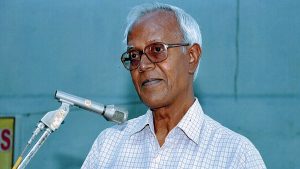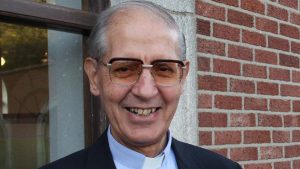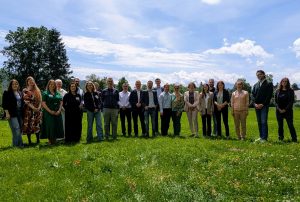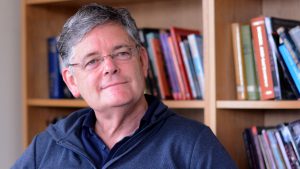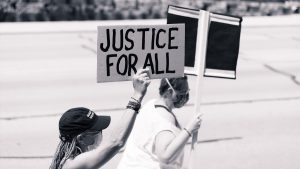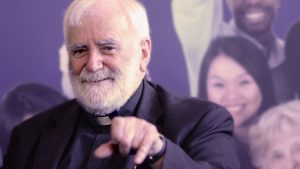Taking stock of a faith that does justice

The various branches of the Social Apostolate of the Irish Province gathered in Milltown on Friday 31 March, for a day of deliberation and fellowship. Participants came from every wing of the justice works of the Jesuits in Ireland, and they were joined by representatives from the Spirituality, Intellectual and Education sectors. The organisers were particularly delighted to welcome José Ignacio Garcia, SJ, who is the newly appointed Director of the Jesuit Refugee Service in Europe.
José’s presence was especially relevant because of his involvement in the 36th General Congregation which met in Rome last year. The day was structured around these documents, as the different parts of the Social Apostolate considered how they applied to their work and how they could inspire a renewed commitment to a faith that does justice.
The day began with reflective prayer led by Edmund Grace SJ, and after a welcome from the Social Justice Delegate, John Guiney SJ, Gerry O’Hanlon SJ offered a wonderful summation of the historical evolution of the Society’s emphasis on justice. The decrees build on the rich tradition within Jesuit thinking that insists that in times of turmoil, “we must continue to think, to resist, to imagine a different world, to hope.”
Six short reflections followed on how the decree documents apply in the different areas of justice work undertaken within the province, not just within the Social sector, but with input from Education (Brian Flannery) and Spirituality (Brendan McManus SJ). An unexpected strike had hit Dublin’s transport system that morning, and Brendan reflected on how the challenge of how to get to work provoked commuters to co-operate in unusual ways, sharing resources and making space for each other. This reflected a truth at the heart of the decrees: Everyone wins when communities co-operate.
In gathering the Social Apostolate together, John had intended to foster community within the different initiatives, to reflect on the relevance of the decrees in our context, and to lead to concrete action. With that in mind, the participants broke up into small groups which reflected on Decree 1, ‘Companions in a Mission of Reconciliation and Justice’, in the light of specific questions: How does our work serve those excluded from society?; how does our work express “mercy in action”?; how does our work foster reconciliation?; how do we maintain “hope with depth” in difficult situations?; and, critically, how can we strengthen our shared mission in the light of the insights of the 36th General Congregation?
A plenary session followed lunch where the groups reported back on these questions. This was where the goals for the day began to come into clear focus. The fellowship around the discussion groups led to sharpened understanding, and a flurry of creative ideas for how this could be expressed in concrete form followed.
The day closed with José Ignacio Garcia offering a reflection on the thinking behind the documents and the challenges that face Jesuit mission today. The General Congregation had taken as their slogan the phrase “Row into the deep”. José explained how, when faced with so many problems, many of which seem insurmountable, people must resist the urge to retreat into an apparent safe harbour. We struggle with doubts, we wrestle with injustice, we face many more questions than answers. But the Jesuit spirituality which the decrees so consistently emphasises guides us away from accepting easy or quick answers, which are rarely the right answers.
The task of discernment is as critical today as it ever was. Events like this, expressions of communal discernment in action, are therefore essential to the ongoing renewal and rejuvenation of the Jesuit commitment to the absolute requirement of promoting justice.


